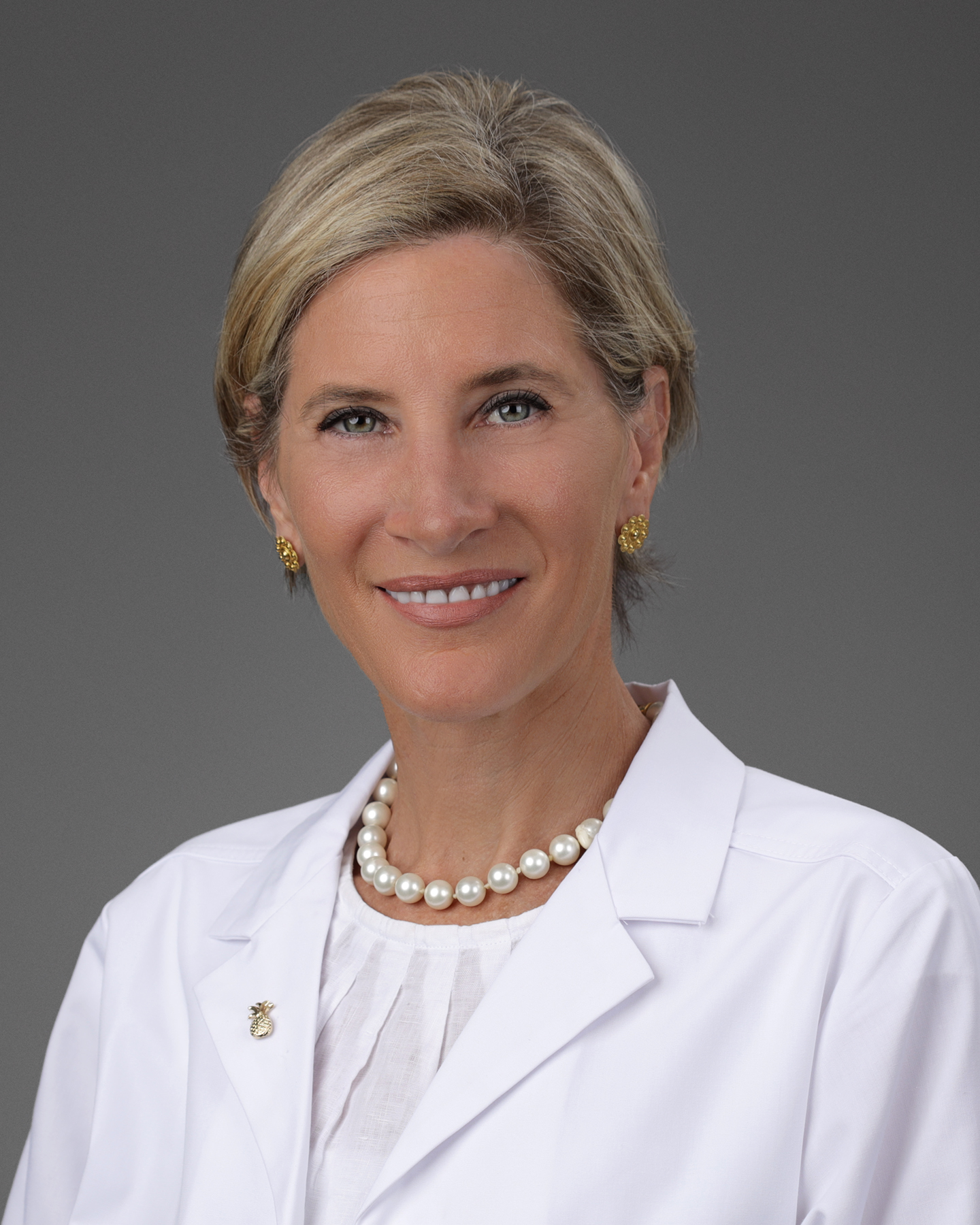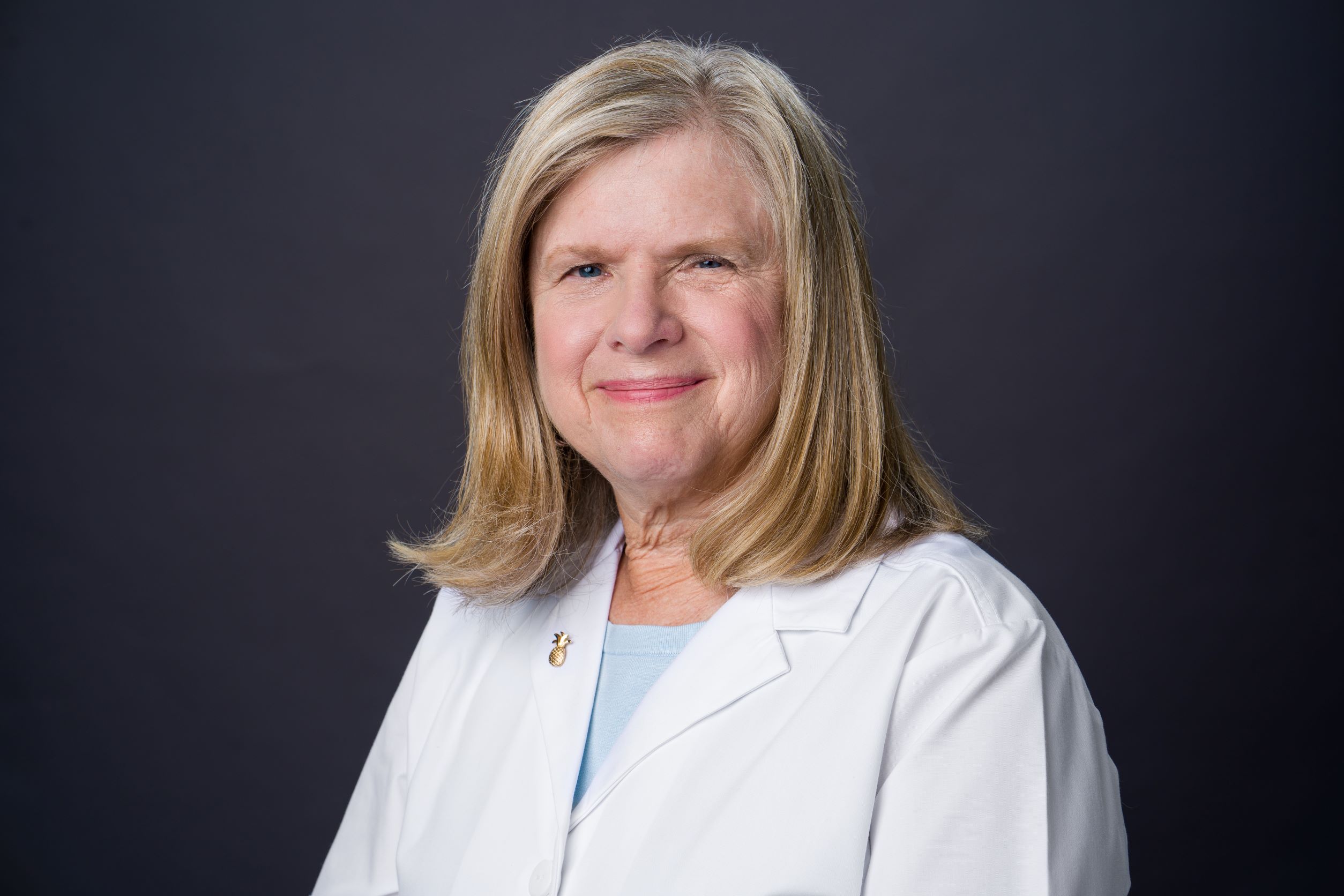

The data tells a compelling story. While breast cancer remains primarily a disease affecting older women, there's a troubling shift emerging: Breast cancer incidence is rising faster among women under 45 than in their older counterparts.
Approximately 10 percent of all new breast cancer diagnoses now occur in women younger than 45, according to the American Cancer Society. At Baptist Health, the proportion is even higher at 13 percent. This accelerating trend over the past decade has significant implications for clinical practice and screening protocols.
Two experts from Baptist Health Cancer Care — breast surgical oncologist Anastasia Tousimis, M.D., MBA, and medical oncologist Louise Morrell, M.D. — recently discussed this phenomenon during a Doc to Doc podcast (watch here). Dr. Tousimis serves as deputy director of Baptist Health Cancer Care and medical director of the Al and Jane Nahmad Women's Cancer Center, while Dr. Morrell is medical executive of the Eugene M. & Christine E. Lynn Cancer Institute at Boca Raton Regional Hospital.

Anastasia Tousimis, M.D., MBA.
Peak incidence of breast cancer remains between ages 60-80, yet the increase in younger women represents "a trend that nobody wants to see," Dr. Morrell states. Breast cancer continues as the second-leading cause of cancer death in women, claiming over 42,000 lives annually in the United States.
Environmental risk factors
Researchers are investigating how environmental exposures might contribute to increased breast cancer cases in younger women. Various factors in contemporary life — from chemical compounds and plastics in household products to dietary elements, lifestyle changes and tobacco use — likely play contributory roles.
"Radiation exposure is certainly one of the environmental risk factors for developing breast cancer," explains Dr. Tousimis. "Other implicated causes are toxins such as BPA and plastics and some pesticides. There's also significant concern about alcohol consumption, and recent data has shown that drinking alcohol, even in smaller amounts, does increase breast cancer risk. Alcohol is also associated with other cancers."
Physical activity demonstrates protective effects against breast cancer development. Dr. Morrell references a trial from the 1990s that compared women who exercised three times weekly to sedentary controls. It showed a 40 percent lower breast cancer rate among the active group.
Genetic predisposition and testing
For women aged 25 and older with personal or family histories of breast cancer, genetic counseling and testing is recommended. Pathogenic mutations in BRCA1 and BRCA2 genes, as well as variants in ATM, BARD1, CHEK2, RAD51C, RAD51D, PALB2, CDH1, TP53, NF1, and STK11, are known to increase breast cancer risk. As more genetic links are established, testing panels change.
"Testing has become very accessible, and any woman with a family history should receive genetic testing," Dr. Morrell emphasizes.
Identifying genetic factors provides value beyond risk stratification and family counseling. These findings inform personalized screening strategies designed to detect cancer in early stages, enable implementation of proven risk-reduction interventions, and guide individualized treatment approaches when cancer occurs.
Screening recommendations for high-risk patients
Current U.S. Preventive Services Task Force guidelines recommend initiating screening mammography at age 40 for average-risk women. However, high-risk populations require earlier surveillance strategies.

Louise Morell, MD
Clinical indications for earlier screening include:
- Women with confirmed genetic mutations
- Those with significant family histories, particularly early-onset cases — for example, if a mother was diagnosed at age 40, screening should begin by age 30 for her daughter
- Patients with previous chest wall radiation exposure
"We don't typically start screening before age 25 because younger women have dense breast tissue, which makes it difficult to detect cancer on mammography," Dr. Morrell notes.
Supplemental imaging with MRI and/or ultrasound may be indicated based on individual risk assessment. "The goal is to have an accurate risk assessment and then use guidelines to determine who should have ultrasound added or additional imaging," she explains.
Advances in detection technology
Continued research is improving early detection capabilities, vital to finding cancers when they are most treatable. Dedicated breast radiologists at Baptist Health Cancer Care utilize artificial intelligence algorithms to enhance mammographic interpretation. "At Lynn Cancer Institute, the addition of AI has led to a 23 percent improvement in the detection rate of breast cancer," Dr. Morrell reports.
The newest advancement in breast imaging combines mammography with contrast-enhanced detection capabilities. Contrast-enhanced mammography (CEM) is available at several Baptist Health locations. While FDA-approved for diagnostic use, CEM has not yet received screening approval, though this authorization is expected in the near future.
Specialized programs for younger patients
Baptist Health Cancer Care has developed specialized approaches for the unique needs of younger women with breast cancer. The Young Breast Cancer Program at Baptist Health Miami Cancer Institute provides coordinated care and streamlined appointments, and addresses critical concerns such as fertility preservation. Multidisciplinary team consultation remains essential for optimal treatment planning, with dedicated high-risk clinics available for appropriate patients.
This evolving trend toward breast cancer in younger women requires enhanced clinical awareness and modified screening approaches. Physicians should assess patient risk factors and implement appropriate screening protocols based on individual risk profiles.
Screening mammography appointments are available at Baptist Health Outpatient Services locations through BaptistHealth.net

